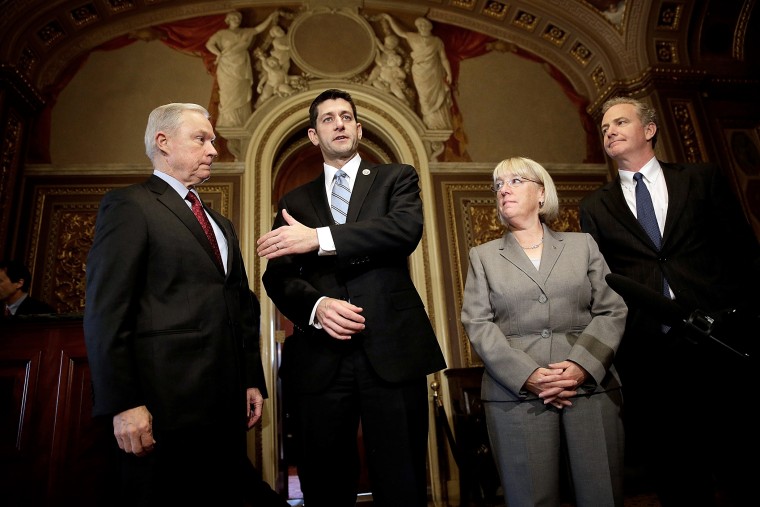Both sides have found one part of the budget they can agree on: There's no chance of a “grand bargain."
"That's all happy talk," Senate Majority Leader Harry Reid said in a Thursday radio interview. “I would hope that were the case, but we're not going to have a grand bargain in the near future."
Wisconsin Rep. Paul Ryan, who sits on the House Budget Committee, said the same in another Thursday interview.
"If we focus on some big, grand bargain then we're going to focus on our differences, and both sides are going to require that the other side compromises some core principle and then we'll get nothing done," Ryan told the Associated Press. “So we aren’t focusing on a grand bargain because I don’t think in this divided government you’ll get one.”
The 29-member committee of 22 senators and seven representatives whose job it is to negotiate a budget deal will convene on Wednesday. They must issue a recommended budget by Dec. 13 to both chambers who must approve it with a majority vote.
Reid slammed Republicans for bowing to extremists in their party in his interview.
“It’s really hard to try to be rational and logical with people who are illogical and not rational,” he said. "You cannot do business with bullies, and it's taken awhile for, um, all my caucus to come to that understanding.”
But Tea Party ringleader Sen. Ted Cruz isn't shying away from voicing his opinions on negotiations. He released a statement condemning the idea of a grand bargain, too.
"So-called grand bargains historically have been neither grand nor a bargain -- typically resulting in more debt, more spending, and more government,” the Texas Republican said. “As long as we keep listening to the people and fighting for jobs and prosperity, Republicans will win this debate."
